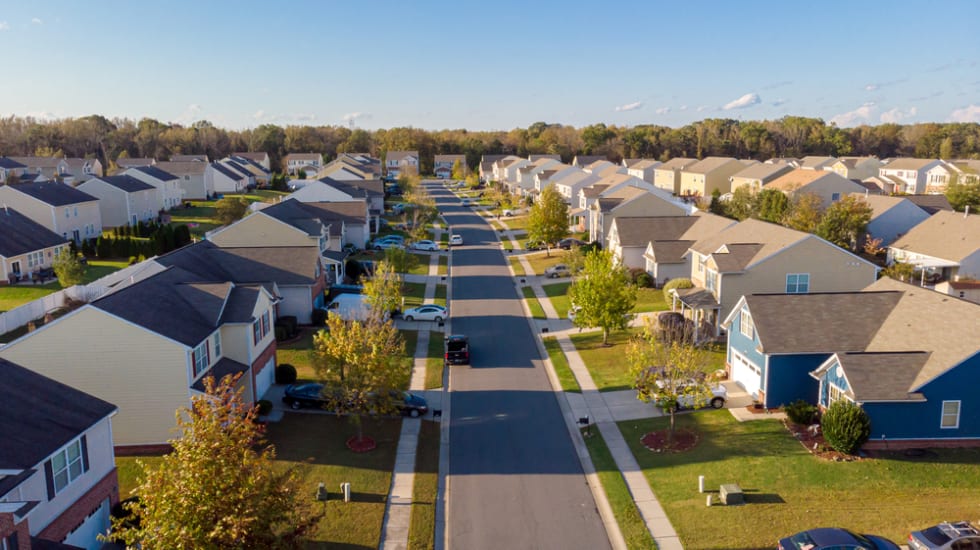What is Landlord Insurance & How Much Does it Cost?

Owning and renting out a property can be a lucrative business for landlords. However, operating costs can also get pricey, with an average capital expenditure of $830 per month per unit. You may be able to factor those costs into your budget and work it into rental income, but what about unexpected expenses?
If you want to avoid the costs of natural disasters, unforeseen damage, and legal fees, you need landlord insurance. Landlord insurance protects your properties and your assets, so you can focus on growing your rental business.
What is Landlord Insurance?
As the name implies, landlord insurance is a type of insurance that covers property owners with renters from financial losses. A landlord insurance policy should cover the building, any units within the dwelling, and inside contents.
Do You Really Need Landlord Insurance?
Landlord insurance isn't required by law, but the consequences of not having it could be a financial disaster. If you don't have landlord insurance, you're liable for everything that happens to your property. Don't count on renters to stand up and pay for the repairs. Landlord insurance also covers injury that occurs on the property with tenants and guests.
What Does Landlord Insurance Cover?
A landlord insurance policy helps cover physical property. The coverage should help repair your home, condo, or apartment if damaged by inclement weather, fire, or other damage and losses. Your property also includes more than where your renter leaves. Your policy can also pay for a garage, fence, shed, or other areas of your property.
The personal property you use to take care of your property may also be covered. A lawnmower, equipment, and painting supplies may also be part of your landlord insurance policy.
Beyond your property, landlord insurance can cover a loss of rental income due to unforeseen circumstances. A policy may also offer protection if a tenant or their guest gets injured on the property.
What Isn’t Covered by Landlord Insurance?
Even the most robust landlord insurance policies won't cover everything. Landlord insurance generally does not protect your renter's personal property, such as electronics and furniture.
However, your renters can purchase their own policy. Unlike a landlord's policy, renters insurance covers theft and other issues inside the unit. Some landlords even require proof of renters' insurance before approving a new lease.
A landlord who leaves their personal property in the property for use, such as a router or DVD player, may also not be covered under landlord insurance.

Landlord Insurance vs. Homeowners Insurance vs. Renters Insurance
Landlord Insurance: Landlord insurance covers the dwelling itself from circumstances like fires or inclement weather. It will also cover property used to keep up the units. Landlord insurance can also protect against risk, like being sued in regards to the unit. The idea is a landlord shouldn't have to sell off their rental unit to pay for a claim.
Homeowners Insurance: Homeowners insurance covers the homeowners home and posessions against damage or theft. It can also protect homeowners from personal liability for harm to others.
Renters Insurance: Renters insurance covers a renter’s personal property within the apartment, condo, townhouse, or another dwelling. They can't ensure the residence they live in because they don't own it.
Instead, renters’ insurance covers what a tenant brings into the apartment. Renters’ insurance can also offer liability coverage. If a renter gets sued for negligence in the apartment they lease, the claim can be paid without dipping into their own resources to do so. A combination of renters’ and landlord insurance should offer robust protection and financial recourse.
For added protection, landlords can also request a larger security deposit or pet deposit. If the renter or their pet damages the apartment and won’t pay, the deposits offer more recourse to cover the financial damage.
How Much Does Landlord Insurance Cost?
Costs fluctuate for landlord insurance, but research suggests the national average is $1,481 per year. The prices go up depending on how much coverage you want and the types of premiums you'll pay each month. However, the cost of repairing an apartment or entire rental home after weather or fire is prohibitive in comparison.
The cost of landlord insurance shouldn't deter you from getting the coverage you need. Landlords should speak to their accountants, though the premiums paid for most any insurance on a rental unit are tax-deductible. Overall, landlord insurance costs about 25% more than a standard home insurance policy.

What is Liability Coverage?
A good landlord insurance policy includes liability coverage. If your tenant tries to sue you for slipping on the driveway, your policy can help with medical expenses and other accidental injuries. Landlords are liable for what happens on the property, and not having liability coverage leaves you open to catastrophic financial implications.
What is Loss of Use Coverage?
A rental property is a business and income source that deserves protection. However, if your property is damaged or no longer a viable income stream, you're left without financial recourse. Here's where landlord insurance comes into play. Loss of Use Coverage is subject to terms and limits, though it can compensate you for the fair rental value of your property during repairs.
What Extra Coverage Is Available with Landlord Insurance?
Depending on the area you live in, additional coverage to your landlord insurance could be a wise investment. Flood insurance protects your dwelling during inclement weather and flooding. A personal umbrella policy is a supplemental insurance when the cost exceeds your standard policy. This additional coverage helps protect you from personal financial responsibility if a renter suffers an injury or tries to use it.

Do You Need Landlord Insurance for a Temporary Rental?
A landlord who is only renting out a room or unit for a short period may not need a complete policy. An amendment to their homeowner's insurance may be the only thing necessary for temporary coverage. This type of coverage may be appropriate for occasional weekend rentals or periodic short-term leases.
Your homeowner's policy will likely view your rotation of renters as a business. However, landlords who rent out their units frequently probably need professional insurance. They could decline to cover you if your tenant damages the property or sues you for an injury related to the rental unit.
Where Can I Find Purchase Landlord Insurance Policies
Shopping for landlord insurance should never be a race to the bottom to find the best rates. Instead, a reasonable rate should reflect affordability and robust coverage that protects your rental units and property.
One place to start shopping around is with your own home insurance policy. Landlords may already have some coverage or should be able to find a discount rate with their current provider. Asking around to other landlords and networking groups can also yield word-of-mouth referrals.
For a brand new policy, here are some of the everyday players in the landlord insurance space:
Liberty Mutual - covers your property, damage, or injury occurring on the rental property, as well as loss of rental income.
Allstate - addresses all the usual landlord insurance coverage and can extend to protect against other issues.
State Farm - offers customizable Rental Dwelling and Rental Condo Unit owners rental property policies.
Foremost - specialized insurance coverage to protect your rentals and personal property.
USAA - fast quotes for landlord insurance and umbrella policies to protect your property and valuables.
Liberty Mutual - offers rental property protection that usually covers the structures and property used for maintenance.
Geico - Landlords who can't find the right policy and want to shop around for various rates can also try Geico. Make sure to scrutinize any policies with cheap premiums and too-good-to-be-true deals.
Final Thoughts
Landlord insurance is a must to protect your income stream and rental properties. You’ll save more in the event of property loss with landlord insurance and give yourself peace of mind.
Share this Article



